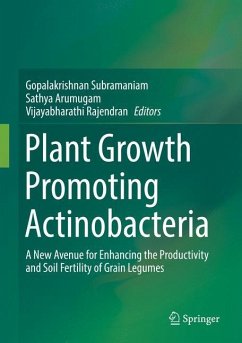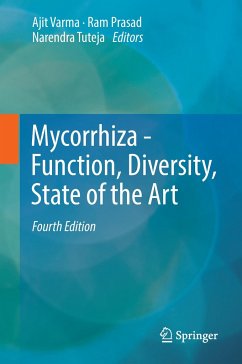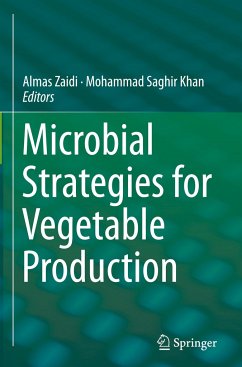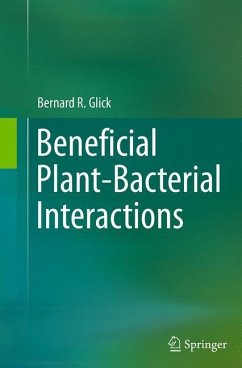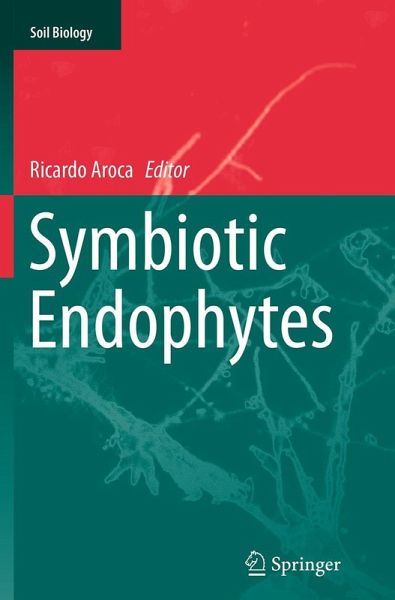
Symbiotic Endophytes
Versandkostenfrei!
Versandfertig in 6-10 Tagen
113,99 €
inkl. MwSt.

PAYBACK Punkte
57 °P sammeln!
This Soil Biology volume examines our current understanding of the mechanisms involved in the beneficial effects transferred to plants by endophytes such as rhizobial, actinorhizal, arbuscular mycorrhizal symbionts and yeasts.Topics presented include how symbiosis starts on the molecular level; chemical signaling in mycorrhizal symbiosis; genomic and functional diversity of endophytes; nitrogen fixation; nutrient uptake and cycling; as well as plant protection against various stress conditions. Further, the use of beneficial microorganisms as biopesticides is discussed, particularly the applic...
This Soil Biology volume examines our current understanding of the mechanisms involved in the beneficial effects transferred to plants by endophytes such as rhizobial, actinorhizal, arbuscular mycorrhizal symbionts and yeasts.
Topics presented include how symbiosis starts on the molecular level; chemical signaling in mycorrhizal symbiosis; genomic and functional diversity of endophytes; nitrogen fixation; nutrient uptake and cycling; as well as plant protection against various stress conditions. Further, the use of beneficial microorganisms as biopesticides is discussed, particularly the application of Plant Growth Promoter Rhizobacteria (PGPR) in agriculture with the aim to increase yields.
Topics presented include how symbiosis starts on the molecular level; chemical signaling in mycorrhizal symbiosis; genomic and functional diversity of endophytes; nitrogen fixation; nutrient uptake and cycling; as well as plant protection against various stress conditions. Further, the use of beneficial microorganisms as biopesticides is discussed, particularly the application of Plant Growth Promoter Rhizobacteria (PGPR) in agriculture with the aim to increase yields.







